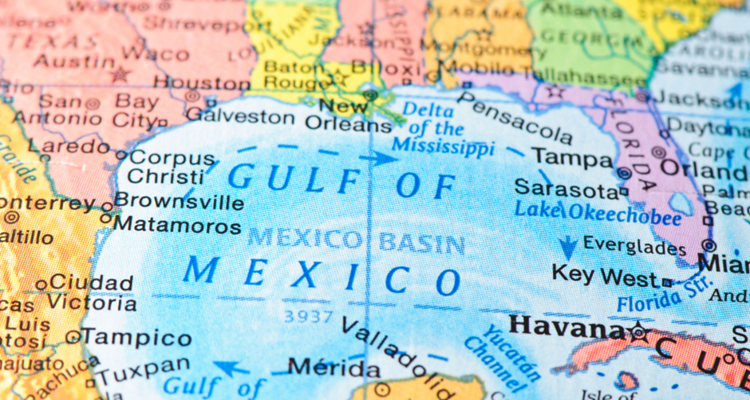Trump Administration Renames Gulf of Mexico and Denali Amid Controversy

In a controversial move, the Trump administration renamed the Gulf of Mexico to the Gulf of America and Denali back to Mount McKinley. Learn more about the political and historical implications.
Trump Administration Sparks Debate with Gulf of Mexico and Denali Name Changes
A Bold Executive Move
In a sweeping first-week action, former U.S. President Donald Trump made good on a campaign promise by ordering the renaming of two significant geographic landmarks. The U.S. Interior Department announced the changes on Friday, confirming that the Gulf of Mexico would now be officially called the Gulf of America and that Alaska’s highest peak, Denali, would revert to its previous name, Mount McKinley.
The decision, part of a broader set of executive orders issued just hours after Trump assumed office, was framed as an effort to honor American historical figures. “As directed by the President, the Gulf of Mexico will now officially be known as the Gulf of America, and North America’s highest peak will once again bear the name Mount McKinley,” the Interior Department stated.
Historical Significance and Previous Renaming Efforts
Alaska’s iconic mountain, which stands as North America’s highest peak at 20,310 feet, was originally named Mount McKinley in 1896 in honor of then-presidential candidate William McKinley, who later served as the 25th President of the United States. However, after long-standing efforts by Alaskan lawmakers and Indigenous groups, the Obama administration restored its Indigenous name, Denali, in 2015. The name means “tall” in the Koyukon Athabaskan language and has been used by Indigenous Alaskans for centuries.
Trump’s decision to reverse that change reignited debates over national identity, cultural recognition, and historical preservation. “These changes reaffirm the nation’s commitment to preserving the extraordinary heritage of the United States and ensuring that future generations of Americans celebrate the legacy of its heroes and historic assets,” the Interior Department’s statement read.
Political Reactions and Public Response
Reactions to the renaming decision have been deeply polarized. Supporters of Trump’s move argue that renaming the Gulf of Mexico and Denali underscores a renewed commitment to traditional American values. Conservative commentators and some Republican lawmakers praised the initiative as a stand for national pride and historical continuity.
Conversely, critics labeled the renaming effort as an unnecessary political move, arguing that it ignored Indigenous history and disrupted internationally recognized geographic conventions. Alaska’s representatives, including prominent Republican senators, had previously celebrated the return to Denali and expressed disapproval of Trump’s reversal.
“Renaming Denali back to Mount McKinley disregards the will of Alaskans and Indigenous communities who have fought for years to restore its rightful name,” said an Alaskan tribal leader. Meanwhile, environmental and academic organizations noted that geographic renaming decisions should be based on cultural and historical significance rather than political agendas.
The Gulf of Mexico: A More Contentious Issue
While the Denali renaming was largely a domestic issue, the decision to rename the Gulf of Mexico sparked international controversy. Trump’s directive to call it the Gulf of America immediately faced resistance from the Mexican government, which pointed out that the name Gulf of Mexico has been internationally recognized for centuries and is deeply embedded in global maritime navigation and historical records.
Mexican President Claudia Sheinbaum jokingly suggested that if such renaming were taken seriously, North America itself could be called “Mexican America”—a nod to early maps that identified the continent as such. “The Gulf of Mexico belongs to all the nations that border it. Changing its name unilaterally would not change international recognition,” said a spokesperson for Mexico’s Foreign Ministry.
Legal and Diplomatic Implications
Legally, the U.S. government has the authority to rename domestic features within its borders, but international bodies such as the United Nations and maritime organizations determine global naming conventions. Experts noted that while the U.S. Geological Survey could update national maps with the new name, international bodies are unlikely to recognize the change.
Diplomatic analysts warned that such a move could strain U.S.-Mexico relations, particularly in trade and border discussions. “Renaming the Gulf of Mexico could be perceived as an aggressive nationalistic gesture,” said a Latin American studies professor. “This could add tension to diplomatic discussions on other pressing issues.”
The Legacy of Presidential Renaming
The practice of renaming landmarks is not unique to Trump’s administration. Over the years, various presidents have initiated name changes to reflect political, cultural, or historical shifts. President Barack Obama’s 2015 decision to rename Mount McKinley to Denali was widely viewed as an acknowledgment of Indigenous history and an effort to strengthen ties with Native American communities.
In contrast, Trump’s renaming efforts seem to reflect his broader nationalist approach, aligning with his “America First” policies. The move has been framed by supporters as a return to traditional American values, while critics see it as an attempt to erase Indigenous recognition.
What Happens Next?
While the changes are officially documented within the U.S. Interior Department’s records, their actual implementation remains uncertain. Mapmakers, government agencies, and international organizations may choose to continue using the traditional names. Additionally, legal challenges or congressional actions could attempt to reverse Trump’s renaming efforts in the future.
For now, the renaming of the Gulf of Mexico and Denali serves as another flashpoint in the ongoing debate over America’s historical narratives, cultural recognition, and political decision-making.
The Trump administration’s renaming decision highlights the complexities of historical recognition and political influence over geographic identity. Whether these names endure or revert in the future remains to be seen, but for now, they stand as another chapter in America’s evolving cultural and political landscape.
Source: (Reuters)
Also Read: U.S. Rejoins Controversial Geneva Consensus Declaration Amid Global Abortion Debate










